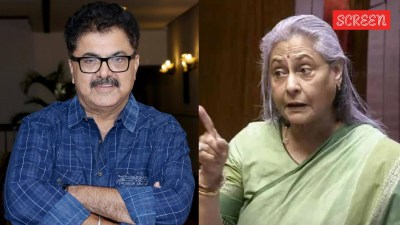Sohrabuddin encounter: CBI ‘accepts’ 2018 special court order acquitting 22 accused, HC to hear brothers’ appeal on Oct 15
The pleas claimed that while some of the witnesses filed an application to be called again as their statements under section 164 of the CrPC were not placed on record, the judge summarily dismissed their pleas on the very date when impugned order was passed.
 The Supreme Court had transferred the probe to CBI and the trial was shifted to a special court in Mumbai. (Express File)
The Supreme Court had transferred the probe to CBI and the trial was shifted to a special court in Mumbai. (Express File)The Central Bureau of Investigation (CBI) on Wednesday told the Bombay High Court that it has “accepted” the 2018 verdict by a special court that acquitted all 22 persons, including 21 police personnel from Gujarat, Rajasthan and Andhra Pradesh, in an alleged fake encounter of Sohrabuddin Shaikh and Tulsiram Prajapati along with the murder of Shaikh’s wife, Kauser Bi in 2005-’06.
The central agency told the HC that it would not file an appeal against the trial court verdict. As per prosecution, Sohrabuddin was killed in a “staged” encounter in November, 2005 in Gujarat and his wife was killed in the same month and Prajapati was killed in December, 2006.
The Supreme Court had transferred the probe to CBI and the trial was shifted to a special court in Mumbai.
In 2018, the special court held that the CBI failed to produce any “documentary and substantive evidence” to suggest or establish the alleged conspiracy.
A bench of Chief Justice Shree Chandrashekhar and Justice Gautam A Ankhad was hearing appeals filed by Sohrabuddin brothers Rubabuddin Shaikh and Nayabuddin Shaikh against the special court verdict.
The HC on June 24, 2019, admitted the appeals noting that they “were preferred by victims as defined under section 2 (wa) of the Criminal Procedure Code (CrPC)”. The HC also issued notices to acquitted persons and the appeals were not heard after October, 2019, until last month.
The appeals sought direction from the HC to quash and set aside the December, 2018, judgement of the special court designated under CBI Act claiming that “observations and conclusions made by the special judge were contradictory to the evidence”.
The appeals further claimed that while over 200 witnesses were examined by the prosecution and 92 turned hostile, there were various witnesses, whose statements were either recorded before a magistrate or video recorded by the investigating officers, however, these statements were not cited, or not produced before the trial court.
The brothers further claimed that the evidence of such witnesses “clearly corroborates the entire sequence of the event, leading up to the alleged fake encounters of Sohrabuddin and Tulsiram Prajapati and also the killing of Kausar bi”.
Therefore, the appellants sought directions from HC to the special court to conduct re-trial under section 386 (a) of Criminal Procedure Code (CrPC). The appellant also claimed that the testimonies of nearly 118 witnesses, who did not turn hostile, were wrongly disregarded by the trial court as “untrustworthy”.
The pleas claimed that while some of the witnesses filed an application to be called again as their statements under section 164 of the CrPC were not placed on record, the judge summarily dismissed their pleas on the very date when impugned order was passed.
During an earlier hearing on September 24, CJ Chandrashekhar had orally remarked, “Under the CrPC, when an evidence is recorded and it is signed by the witness, if he/she says that it is not correctly recorded, the same day he/she has to file an application and if not the same day, then the next day. That is the law. One cannot file an application after too many years. You (appellants) have to first examine the statutory provision then only you can address the court.”
On Wednesday, Additional Solicitor General (ASG) Anil Singh, representing the CBI, told the bench that it would not be filing any appeal against the impugned judgement. “We have accepted the acquittal judgement,” Singh submitted on behalf of CBI.
After the judges sought to know from the appellants the names and serial number of witnesses whose statements, as per appellants were not recorded as per the due procedure, advocate Gautam Tiwari submitted that the brothers had not received relevant documents from the trial court and did not have all the records.
The HC then asked the appellants to submit such witnesses by the next hearing on October 15.







